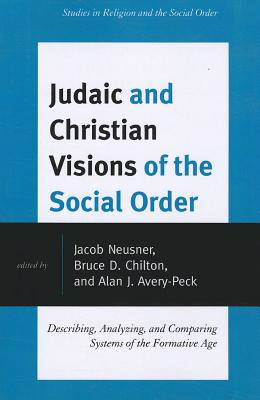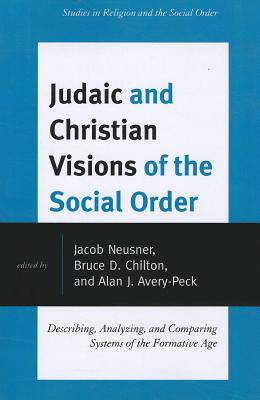
- Afhalen na 1 uur in een winkel met voorraad
- Gratis thuislevering in België vanaf € 30
- Ruim aanbod met 7 miljoen producten
- Afhalen na 1 uur in een winkel met voorraad
- Gratis thuislevering in België vanaf € 30
- Ruim aanbod met 7 miljoen producten
Zoeken
Judaic and Christian Visions of the Social Order
Describing, Analyzing and Comparing Systems of the Formative Age
€ 99,95
+ 199 punten
Omschrijving
The seven essays in this book address formative Judaic writings in the time of the Mishnah and the Talmud, the first six centuries of the Common Era, and formative Christianity in the first six centuries of the Common Era. The essays explore the areas where Judaism and Christianity have intersected.
Specificaties
Betrokkenen
- Uitgeverij:
Inhoud
- Aantal bladzijden:
- 388
- Taal:
- Engels
- Reeks:
Eigenschappen
- Productcode (EAN):
- 9780761856351
- Verschijningsdatum:
- 6/09/2011
- Uitvoering:
- Paperback
- Formaat:
- Trade paperback (VS)
- Afmetingen:
- 161 mm x 235 mm
- Gewicht:
- 616 g

Alleen bij Standaard Boekhandel
+ 199 punten op je klantenkaart van Standaard Boekhandel
Beoordelingen
We publiceren alleen reviews die voldoen aan de voorwaarden voor reviews. Bekijk onze voorwaarden voor reviews.







